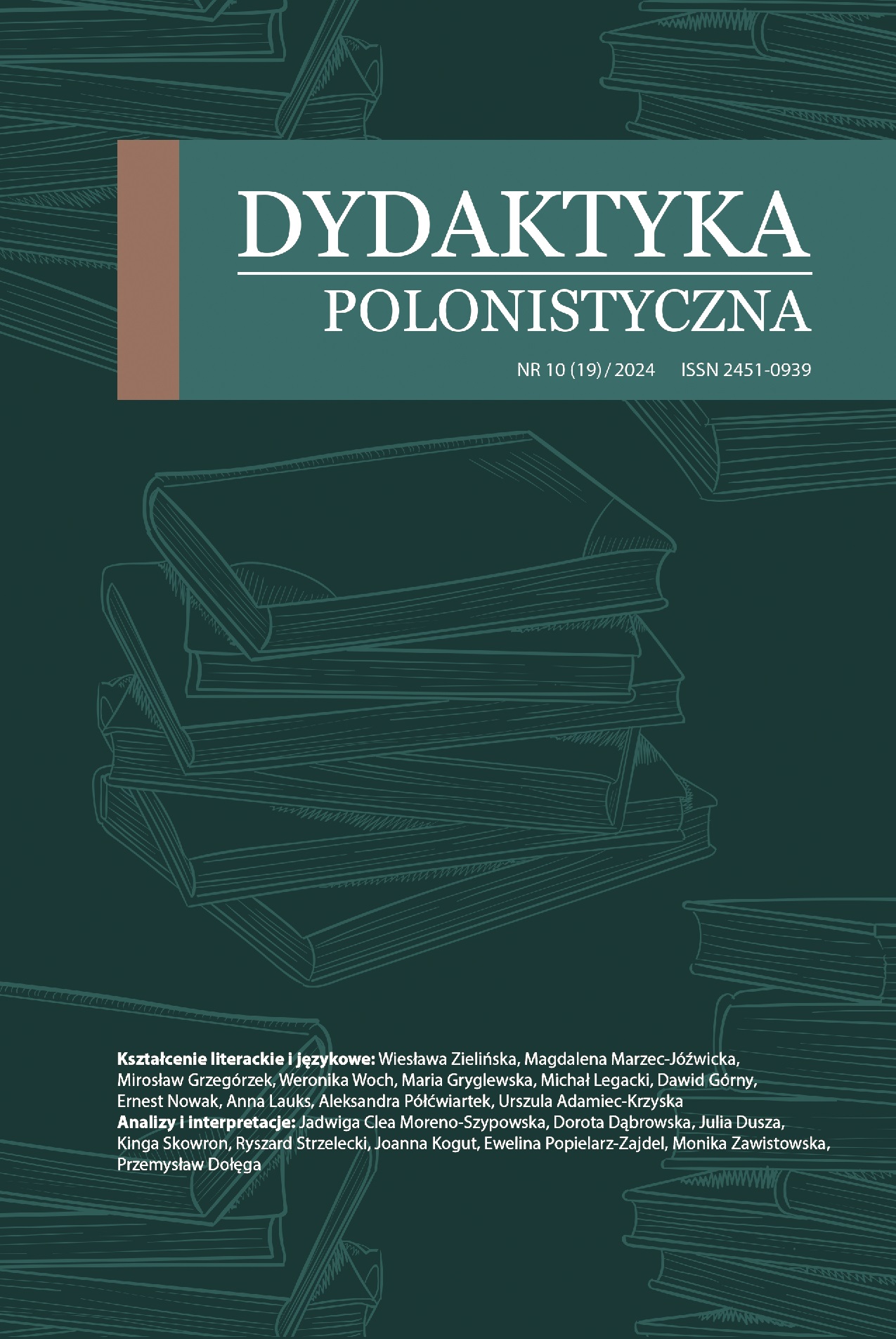Emma Bovary – (un)reciprocated passion. From the customs of reading universal literature in high school
DOI:
https://doi.org/10.15584/dyd.pol.19.2024.3Keywords:
novel, didactics, reading, realism, naturalism, FlaubertAbstract
The text concerns the untapped potential of the classics of universal literature (more precisely, realistic and naturalistic prose) in high school. The starting point for the reflection focused on Flaubert’s novel is its title character, who evokes sympathy, desire, indifference, distaste, disgust, and the essays of scandalists: Mario Vargas Llosa and Vladimir Nabokov. Another pretext for thinking about the possible dimensions of the presence and ways of reading Emma Bovary during literature lessons are the provisions of the “new” Core Curriculum, as well as selected textbooks for secondary schools with methodological suggestions inscribed in them and the available didactic support related to Madame Bovary. The whole is complemented by the voices of literary scholars, biographers and translators (including M. Żurowski, P. Śniedziewski, M. Bieńczyk, K. Szczuka, R. Lis, R. Engelking, F. Brown, J. Rousset, J. Ranciere), well-known readers and critics (including A. Sygietyński, J. Parandowski, A. Bobkowski), the author himself (including French letters to Luiza Colet) and statements from non-professional recipients (students). At the intersection of the gazes – voices – readings of the quoted people and the literary character presented intertextually, there may be an other look, exposing the solidarity of human experiences, at one of the most important novels in the history of literature: between the novel, biographies and life.


